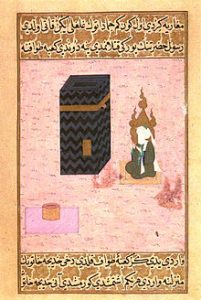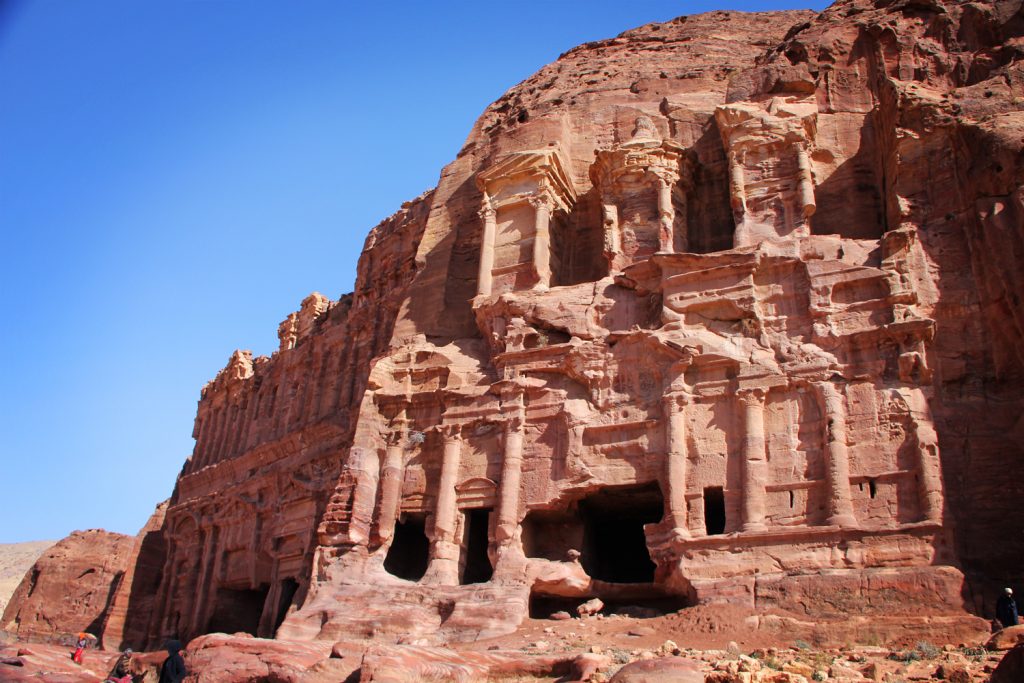São Paulo – Casa do Saber, center for debates and dissemination of knowledge in São Paulo, is offering the course ‘Origins of the Islamic World’ with professor Plinio Gomes in four lectures. Registrations are open and the classes start in February 19 at 8 pm, at the institution located at 414 Dr. Mario Ferraz street. There is also the option to watch the classes online.
The course covers the history of the Arab world and the Islam from five cities critical for the development of these civilizations, starting with Petra (current Jordania), then Mecca (Saudi Arabia), Damascus (Syria), Jerusalem (Palestine) and Bagdad (Iraq). In the photo above, the city of Petra.
According to professor Plínio Gomes, although the Islamic calendar dates to 1440 years, the religion starting poin came way before that period. “The idea is showing the Islamism didn’t came out of the blue, it was created along many centuries with Semitic, Hellenist and Persian roots,” he said.
Gomes said many confuse the Muslim religion with the Arab people, because the first written publication in the Arabic language was Quran. “The Islam defines the Arab people, even though not all Arabs are Muslims, because it consolidates the Arabic language,” he stated.

In the course, he intends to tell the history of the birth of the Islamism and Arab culture, which goes hand in hand, starting with the Nabateans people, who lived in Petra from the 1st century BC to the 1st century AC. “It is a very important city. It was a crossing point between commercial routes to the Roman Empire for incense, myrrh and bitumen, between the Mediterranean and Mesopotamia, and the Nabateans people had a Semitic background and spoke a meridional Aramaic dialect, a language very similar to Arabic,” said the professor.
According to Gomes, the incense was commonly used for religious purposes in Pagan temples; myrrh was a medicinal aroma widely used at the time, specially as a balm to treat wounds, and bitumen was the base for cosmetics and beauty creams from the Dead Sea.
“Islam is rooted in Judaism and Christianism, has a very strong connection to these religions, mentions Biblical characters such as Mary, Abraham and King Solomon, and does not explain who they are like the Bible does because the information is already known,” said Gomes.
According to the professor, the Semitic source of the Islamism is tied to the religious context; the Hellenistic one brings the Greek scientific and philosophical knowledge; and the Persian source brings the cultural component and the political structures and techniques to organize the religious state. “Islam is a mix of these cultures, that is why he could expand so easily,” he stressed.
The course goes to Mecca, Saudi Arabia, telling the story of Mohammed and the role the city played within the caravan network. “Islamism as a religion consolidates in Mecca and started expanding to the North, towards Damascus and Jerusalem,” said Gomes.
The professor said that Bagdad, the last city covered in the course was founded in the 8th century (723 AC), “projected as Brasilia, in an uninhabited place, as a capital of the Islamism in Mesopotamia, between the Middle East and Persia, for a geopolitical, strategic purpose.”
In this point of history, according to Gomes, Islam was already an empire, and the creation of Bagdad denotates a moment where politics are much more important than religion. “We will even talk about the book ‘One Thousand and One Nights,’ which has many stories taking place in Bagdad during this period,” he added.
The course is indicated for those interested in history, geography, religion, literature, architecture, and art history. The classes will also bring contents such as the origin of architectural monuments in Petra and Ka’ba, a black cube in Mecca that is the destination of Muslim pilgrims. “Ka’ba served as a deposit for idols from different tribes that passed through there before Islamism was created, and eventually became a symbol of Islam unity,’ concluded Gomes.
Plinio Gomes has a master’s degree in history by University of São Paulo. The price for the on-site course is 4x BRL 185.00 (USD 50.00), andfor the online version, 4x BRL 195.00 (USD 53.00). Registrations may be made through the Casa do Saber website.
Quick Facts
As Origens do Mundo Islâmico
Professor Plinio Gomes
Starting at February 19
4 meetings
From 8 to 10 pm
Casa do Saber
Rua Dr. Mario Ferraz, 414, São Paulo
Registrations opened
On-site
Online
Translated by Guilherme Miranda




